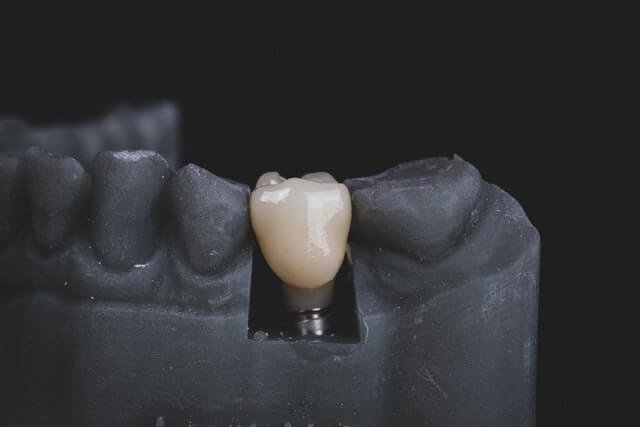Dental Implant Fast Facts
- They are nearly as strong as natural teeth
- Implants preserve the jawbone
- The implant won’t get cavities
- Dental implants can improve your health
Dental implants are used to replace missing teeth, they are a more permanent alternative to bridges, or dentures; partial, or complete. A couple of reasons to use implants are:
- The root needs to be replaced.
- There aren’t enough existing supporting structures for a bridge.
Playlist




What are dental implants?
Who performs dental implant surgery?
A dentist can perform the surgery depending on their training and expertise, however, a specialist may be recommended if the surgery is too difficult or has further complications.
Who can get dental implants?

How is dental implant surgery performed?
- The implant site will be examined carefully, x-rays of your jaws and teeth will also be performed.
- During the first part of the surgery your dentist will install the dental implant beneath the gum tissue. After the implant is successfully secured, the gum tissue will be stitched back into place. The implant will bond with the bone and attach to the gum. This can take up to a few months to heal properly.
- Once the affected tissue has healed, your dentist will attach an abutment (fake tooth) to the dental implant. It may take multiple visits to get the implant properly oriented.
Considering getting a implant?
Calling us is free!
What happens if multiple teeth are missing?
If you have more than one tooth missing, there are a couple things that can happen:
- If it is 1-2 teeth, implants will be installed in both sockets.
- if you have more than two teeth missing side-by-side, then a bridge can be made using the dental implant abutment teeth as the anchors. (If the jaw is healthy and has not deformed due to the missing teeth.
What are the benefits of dental implants?
- Maintains/improves oral health – Missing teeth can cause jaw deformity, and increase the likelihood of gum disease and tooth decay.
- Improves speech – A missing tooth can make speech difficult, especially if it is multiple teeth.
- Implants are cavity-free – You will need to maintain proper oral health to keep your gums and other teeth healthy, but your implant can’t get cavities!
- Improved confidence – You might be self-conscious about your missing teeth. With an implant, passer-by’s will never know you had less than the right amount.
- Long lasting – Implants are secured directly into the gums where the root is. As long as oral health is maintained, they should last a lifetime.
- Long-term solution – Dentures: partial or full, can replace missing teeth, but they are taken out often, and will need to be cleaned and maintained seperately

Are there any risks to dental implants?
- Infection at the implant site.
- Injury or damage to the surronding structures.
- Nerve damage.
- Sinus problems.
Frequently Asked Questions
Tooth loss is a prevalent among dental patients, therefore, implants to replace the teeth are pretty common.
They are very safe. There are some risks that can happen, but overall they are not a risky procedure.
There is some discomfort, however, with proper technique and utilizing tactics like freezing, the procedure can be done fairly painlessly.
The surgery is generally a two step process, installing the implant, then adding the abutment. The average duration with healing time can be up to 9 months. This depends on:
- The state of your dental health.
- Which teeth need to be replaced.
- The number of teeth being replaced.
- If you require tooth extraction beforehand.
For two days following your surgery, drink liquids and consume soft foods only such as:
- Cooked cereals
- Yogurt
- Smooth soups
- Cottage cheese
- Ice cream
- Mashed potatoes
- Protein shakes
- Fruit smoothies
- Refried beans
Generally the implant is readily accepted. Rejection will usually only occur due to rare allergies to titanium.

